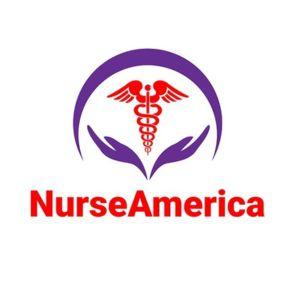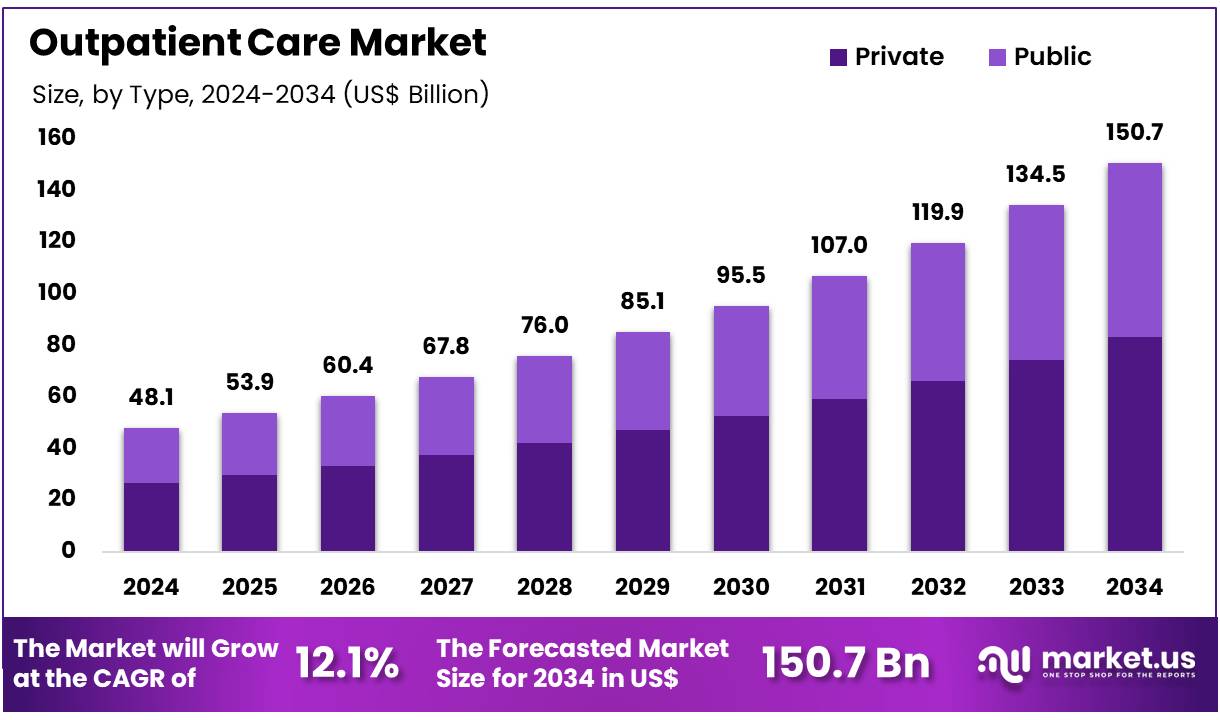The global Respiratory Care Devices Market is poised for significant expansion over the coming decade, driven by rising prevalence of chronic respiratory diseases, technological advancements in respiratory monitoring, and a growing geriatric population. As respiratory conditions like COPD (Chronic Obstructive Pulmonary Disease), asthma, and sleep apnea become more widespread, the demand for both in-hospital and home respiratory monitoring solutions is set to escalate.
The global respiratory care devices market size is expected to reach USD 44.96 billion by 2032, according to a new study by Polaris Market Research.
Market Overview
Respiratory care devices are used in the diagnosis, treatment, and monitoring of patients with respiratory conditions. These devices play a critical role in managing both acute and chronic respiratory diseases, offering solutions such as oxygen concentrators, nebulizers, inhalers, CPAP devices, and ventilator devices. With the advent of non-invasive and smart connected equipment, patient care is becoming more efficient, personalized, and accessible.
The COVID-19 pandemic served as a catalyst for the global respiratory devices market, dramatically increasing the demand for mechanical ventilators and oxygen therapy equipment. Although the pandemic has waned, awareness of respiratory health has surged, fostering sustained demand for pulmonary therapy equipment across hospitals, clinics, and home care settings.
Key Market Growth Drivers
Surging Prevalence of Chronic Respiratory Diseases
The increasing global burden of chronic respiratory diseases, particularly asthma and COPD, is a major factor driving market growth. According to the World Health Organization, over 300 million people suffer from asthma, and COPD is projected to become the third leading cause of death globally.
Aging Global Population
The global population aged 65 and above is growing rapidly. Older adults are more susceptible to respiratory conditions, necessitating the use of advanced monitoring and therapeutic devices. This demographic trend is expected to significantly boost market demand, particularly in developed economies.
Technological Advancements and Smart Devices
Integration of AI, IoT, and wireless technologies in respiratory care is revolutionizing the market. Devices now offer real-time monitoring, remote diagnostics, and enhanced patient compliance, making home respiratory monitoring increasingly feasible and effective.
Post-COVID Healthcare Infrastructure Development
The global healthcare system has witnessed heavy investments in critical care infrastructure post-COVID-19. Countries have bolstered their inventories of ventilator devices and oxygen supplies, creating a permanent demand baseline for emergency preparedness.
Shift Toward Home-Based Care
Patient preference for home care, cost-efficiency, and insurance support are encouraging the adoption of compact, portable respiratory solutions. Devices like portable oxygen concentrators and wearable respiratory monitors are seeing rising popularity.
Market Challenges
Despite strong growth potential, the respiratory care devices market faces several challenges:
High Cost of Equipment: Advanced respiratory equipment, especially smart and portable devices, come at a high price, limiting accessibility in low-income regions.
Reimbursement and Regulatory Hurdles: Inconsistent reimbursement policies across different countries and stringent regulatory requirements can hinder market expansion, particularly for new entrants.
Device Maintenance and Calibration Issues: Regular maintenance, calibration, and user training are required for optimal functionality of respiratory devices, which may be challenging in remote or underserved areas.
Lack of Skilled Healthcare Personnel: In many emerging markets, the shortage of trained professionals to operate complex devices like ventilators poses a major barrier.
𝐄𝐱𝐩𝐥𝐨𝐫𝐞 𝐓𝐡𝐞 𝐂𝐨𝐦𝐩𝐥𝐞𝐭𝐞 𝐂𝐨𝐦𝐩𝐫𝐞𝐡𝐞𝐧𝐬𝐢𝐯𝐞 𝐑𝐞𝐩𝐨𝐫𝐭 𝐇𝐞𝐫𝐞:
https://www.polarismarketresearch.com/industry-analysis/respiratory-care-devices-market
Regional Market Analysis
North America
North America remains the largest market for respiratory care devices, owing to its robust healthcare infrastructure, high awareness, and favorable reimbursement policies. The U.S. has witnessed significant growth in home respiratory monitoring due to its aging population and the rise of telehealth services.
Europe
Europe holds a substantial share, supported by high incidence rates of respiratory disorders, government healthcare funding, and technological adoption. Germany, the UK, and France lead the European market.
Asia-Pacific
The Asia-Pacific region is projected to experience the highest growth rate, driven by rising pollution levels, increasing smoking rates, and expanding healthcare access. Countries like China and India are investing heavily in healthcare modernization and local manufacturing of pulmonary therapy equipment.
Latin America and Middle East & Africa
These regions are gradually developing their healthcare systems. Brazil, South Africa, and Saudi Arabia are showing increasing demand for ventilator devices and diagnostic tools due to growing awareness and government initiatives.
Key Companies in the Respiratory Care Devices Market
Several global and regional players dominate the respiratory care devices market. Key companies are focusing on product innovation, strategic partnerships, and geographic expansion to strengthen their positions.
Philips Respironics (Koninklijke Philips N.V.)
A major player in sleep and respiratory care, known for its CPAP machines, oxygen concentrators, and home respiratory monitoring solutions.
ResMed Inc.
Specializes in cloud-connected devices for sleep apnea and other chronic respiratory diseases. Its cloud-based platform helps patients and providers track and manage respiratory health remotely.
Medtronic plc
Offers a wide range of respiratory support products including mechanical ventilators and monitoring systems. Strong presence in hospitals and critical care settings.
Fisher & Paykel Healthcare
Known for innovative respiratory humidification and ventilation products, especially in neonatal and adult intensive care.
Drägerwerk AG & Co. KGaA
A German company with a strong foothold in critical care, especially mechanical ventilators and anesthesia workstations.
GE Healthcare
Provides advanced respiratory diagnostic imaging and ventilator support technologies. Collaborating with AI firms to enhance device intelligence.
Vyaire Medical Inc.
A specialist in respiratory diagnostics and ventilation solutions, especially popular among clinics and home care providers.
Future Outlook
The future of the respiratory care devices market looks promising with the continued focus on non-invasive, intelligent, and personalized care. The rise of pulmonary therapy equipment that integrates wearable technology, remote access, and data analytics will significantly transform the way respiratory conditions are managed globally.
Investments in R&D, coupled with strong collaborations between med-tech firms and healthcare providers, are expected to yield groundbreaking innovations in the coming years. Meanwhile, the adoption of green technologies and sustainability practices in device manufacturing is gaining traction to address environmental concerns.
Conclusion
In conclusion, the global respiratory care devices market is entering a transformative phase, fueled by medical necessity, technological innovation, and changing healthcare delivery models. With robust growth across both developed and emerging markets, the sector offers ample opportunities for investors, manufacturers, and healthcare providers alike.
As chronic respiratory illnesses continue to burden health systems worldwide, the emphasis on early diagnosis, personalized therapy, and accessible care will remain at the heart of respiratory device development.
More Trending Latest Reports By Polaris Market Research:
Voluntary Carbon Credit Market
Precision Swine Farming Market
D-Dimer Testing Market
Flame Retardants Market
Wax Melts Market
Europe Facial Injectables Market
Reverse Osmosis (RO) Membrane Market
Electrolytic Manganese Dioxide Market
Cyber Security Market
The global Respiratory Care Devices Market is poised for significant expansion over the coming decade, driven by rising prevalence of chronic respiratory diseases, technological advancements in respiratory monitoring, and a growing geriatric population. As respiratory conditions like COPD (Chronic Obstructive Pulmonary Disease), asthma, and sleep apnea become more widespread, the demand for both in-hospital and home respiratory monitoring solutions is set to escalate.
The global respiratory care devices market size is expected to reach USD 44.96 billion by 2032, according to a new study by Polaris Market Research.
🌍 Market Overview
Respiratory care devices are used in the diagnosis, treatment, and monitoring of patients with respiratory conditions. These devices play a critical role in managing both acute and chronic respiratory diseases, offering solutions such as oxygen concentrators, nebulizers, inhalers, CPAP devices, and ventilator devices. With the advent of non-invasive and smart connected equipment, patient care is becoming more efficient, personalized, and accessible.
The COVID-19 pandemic served as a catalyst for the global respiratory devices market, dramatically increasing the demand for mechanical ventilators and oxygen therapy equipment. Although the pandemic has waned, awareness of respiratory health has surged, fostering sustained demand for pulmonary therapy equipment across hospitals, clinics, and home care settings.
🚀 Key Market Growth Drivers
Surging Prevalence of Chronic Respiratory Diseases
The increasing global burden of chronic respiratory diseases, particularly asthma and COPD, is a major factor driving market growth. According to the World Health Organization, over 300 million people suffer from asthma, and COPD is projected to become the third leading cause of death globally.
Aging Global Population
The global population aged 65 and above is growing rapidly. Older adults are more susceptible to respiratory conditions, necessitating the use of advanced monitoring and therapeutic devices. This demographic trend is expected to significantly boost market demand, particularly in developed economies.
Technological Advancements and Smart Devices
Integration of AI, IoT, and wireless technologies in respiratory care is revolutionizing the market. Devices now offer real-time monitoring, remote diagnostics, and enhanced patient compliance, making home respiratory monitoring increasingly feasible and effective.
Post-COVID Healthcare Infrastructure Development
The global healthcare system has witnessed heavy investments in critical care infrastructure post-COVID-19. Countries have bolstered their inventories of ventilator devices and oxygen supplies, creating a permanent demand baseline for emergency preparedness.
Shift Toward Home-Based Care
Patient preference for home care, cost-efficiency, and insurance support are encouraging the adoption of compact, portable respiratory solutions. Devices like portable oxygen concentrators and wearable respiratory monitors are seeing rising popularity.
⚠️ Market Challenges
Despite strong growth potential, the respiratory care devices market faces several challenges:
High Cost of Equipment: Advanced respiratory equipment, especially smart and portable devices, come at a high price, limiting accessibility in low-income regions.
Reimbursement and Regulatory Hurdles: Inconsistent reimbursement policies across different countries and stringent regulatory requirements can hinder market expansion, particularly for new entrants.
Device Maintenance and Calibration Issues: Regular maintenance, calibration, and user training are required for optimal functionality of respiratory devices, which may be challenging in remote or underserved areas.
Lack of Skilled Healthcare Personnel: In many emerging markets, the shortage of trained professionals to operate complex devices like ventilators poses a major barrier.
𝐄𝐱𝐩𝐥𝐨𝐫𝐞 𝐓𝐡𝐞 𝐂𝐨𝐦𝐩𝐥𝐞𝐭𝐞 𝐂𝐨𝐦𝐩𝐫𝐞𝐡𝐞𝐧𝐬𝐢𝐯𝐞 𝐑𝐞𝐩𝐨𝐫𝐭 𝐇𝐞𝐫𝐞: https://www.polarismarketresearch.com/industry-analysis/respiratory-care-devices-market
🌐 Regional Market Analysis
North America
North America remains the largest market for respiratory care devices, owing to its robust healthcare infrastructure, high awareness, and favorable reimbursement policies. The U.S. has witnessed significant growth in home respiratory monitoring due to its aging population and the rise of telehealth services.
Europe
Europe holds a substantial share, supported by high incidence rates of respiratory disorders, government healthcare funding, and technological adoption. Germany, the UK, and France lead the European market.
Asia-Pacific
The Asia-Pacific region is projected to experience the highest growth rate, driven by rising pollution levels, increasing smoking rates, and expanding healthcare access. Countries like China and India are investing heavily in healthcare modernization and local manufacturing of pulmonary therapy equipment.
Latin America and Middle East & Africa
These regions are gradually developing their healthcare systems. Brazil, South Africa, and Saudi Arabia are showing increasing demand for ventilator devices and diagnostic tools due to growing awareness and government initiatives.
🏢 Key Companies in the Respiratory Care Devices Market
Several global and regional players dominate the respiratory care devices market. Key companies are focusing on product innovation, strategic partnerships, and geographic expansion to strengthen their positions.
Philips Respironics (Koninklijke Philips N.V.)
A major player in sleep and respiratory care, known for its CPAP machines, oxygen concentrators, and home respiratory monitoring solutions.
ResMed Inc.
Specializes in cloud-connected devices for sleep apnea and other chronic respiratory diseases. Its cloud-based platform helps patients and providers track and manage respiratory health remotely.
Medtronic plc
Offers a wide range of respiratory support products including mechanical ventilators and monitoring systems. Strong presence in hospitals and critical care settings.
Fisher & Paykel Healthcare
Known for innovative respiratory humidification and ventilation products, especially in neonatal and adult intensive care.
Drägerwerk AG & Co. KGaA
A German company with a strong foothold in critical care, especially mechanical ventilators and anesthesia workstations.
GE Healthcare
Provides advanced respiratory diagnostic imaging and ventilator support technologies. Collaborating with AI firms to enhance device intelligence.
Vyaire Medical Inc.
A specialist in respiratory diagnostics and ventilation solutions, especially popular among clinics and home care providers.
🔮 Future Outlook
The future of the respiratory care devices market looks promising with the continued focus on non-invasive, intelligent, and personalized care. The rise of pulmonary therapy equipment that integrates wearable technology, remote access, and data analytics will significantly transform the way respiratory conditions are managed globally.
Investments in R&D, coupled with strong collaborations between med-tech firms and healthcare providers, are expected to yield groundbreaking innovations in the coming years. Meanwhile, the adoption of green technologies and sustainability practices in device manufacturing is gaining traction to address environmental concerns.
📌 Conclusion
In conclusion, the global respiratory care devices market is entering a transformative phase, fueled by medical necessity, technological innovation, and changing healthcare delivery models. With robust growth across both developed and emerging markets, the sector offers ample opportunities for investors, manufacturers, and healthcare providers alike.
As chronic respiratory illnesses continue to burden health systems worldwide, the emphasis on early diagnosis, personalized therapy, and accessible care will remain at the heart of respiratory device development.
More Trending Latest Reports By Polaris Market Research:
Voluntary Carbon Credit Market
Precision Swine Farming Market
D-Dimer Testing Market
Flame Retardants Market
Wax Melts Market
Europe Facial Injectables Market
Reverse Osmosis (RO) Membrane Market
Electrolytic Manganese Dioxide Market
Cyber Security Market









